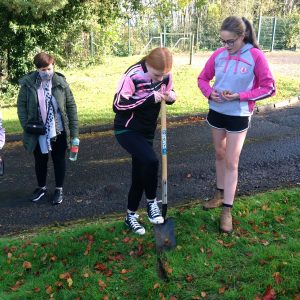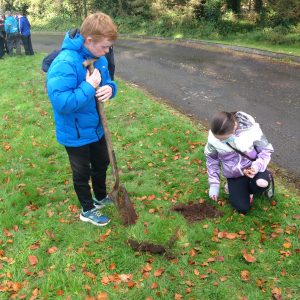Ms AM. Clare-Kelly (HOD)
Geography is all around us. It is topical, relevant and at the leading edge of technology. Geography helps us make sense of the world we live in. In short, Geography is a vital subject in the twenty-first century. Geography will give you a fascinating insight into how human and physical processes interact. Global population continues to grow, placing ever greater demands on Earth and its systems. People and places are fascinating; Geography helps you to understand what makes them so
Key Stage 3 Geography
Year 8
- What is Geography?
- Map Skills
- Weather and Climate
- Settlement
Year 9
- Population, Urbanisation and Migration
- Rivers
- Managing Our Resources
- Tourism
Year 10
- Natural Hazards: Volcanoes and Earthquakes
- Ecosystems
- Development and Global Issues
- Coasts
Unique features of this subject
Geography is a dynamic subject, not only because places, geographical features, patterns and issues change, but also because new ideas and methods lead to new interpretations. Geography gives you the opportunity to develop skills that are useful across the school curriculum as well as being highly sought after by universities and employers.
What skills will I develop?
Geography is a practical subject: you will develop skills that will be useful in your other subjects, for further study (for example GCSE, A level), at home and at work. You will develop map skills (including GIS), data handling and analysis, problem solving, decision making, self-management and working with others.
Why study Geography for GCSE?
- By studying Geography, you will develop as an effective and independent learner and as a critical thinker with an enquiring mind. You will gain knowledge and understanding of geographical concepts such as sustainable development and interdependence and how these concepts affect our changing world. Geography will help you develop as a global citizen able to recognise how you can contribute to a future that is sustainable and inclusive.
- Through the study of Geography, you will develop an appreciation of the differences and similarities between people’s views of the world, and its environment, societies and cultures. You will gain an understanding of the significance of values and attitudes related to the development and resolution of issues such as climate change.
- Geography is not just a classroom subject: you will have opportunities to develop and apply your learning to the real world through participation in fieldwork and other learning outside the classroom.
.
What will I study at GCSE level?
Unit 1: Understanding Our Natural World
- You will study River Environments, Coastal Environments, Our Changing Weather and Climate, and The Restless Earth.
- This unit is assessed in a 1 hour 30 minute written examination worth 40% of the overall GCSE qualification.
Unit 2: Living in Our World
- You will study Population and Migration, Changing Urban Areas, Contrasts in World Development, and Managing Our Environment.
- This unit is assessed in a 1 hour 30 minute written examination worth 40% of the overall GCSE qualification.
Unit 3: Fieldwork Report
- You will collect geographical data first hand and create and submit a word-processed fieldwork statement and table of data.
- This unit is assessed in a 1 hour written examination worth 20% of the overall GCSE qualification.
GCSE Geography – what skills will I develop?
Geography is a practical subject: you will develop skills that will be useful in your other subjects, for further study (for example A level), at home and at work. You will develop map skills (including GIS), data handling and analysis, problem solving, decision making, self-management and working with others.
What can I do with a qualification in Geography?
This qualification will help you gain valuable skills that can help lead to further study at Advanced level.
Studying Geography can lead to a wide range of careers such as urban planning, cartography, GIS applications, climatology, hydrography, environmental management, weather forecasting, research, journalism, landscape architecture, surveying, aerial photography and teaching.
Benefits to Students
Geography combines well with science subjects such as Biology, Chemistry and Physics, and with Mathematics, Business Studies, Environmental Technology and Economics. Students can develop their skills in Communication, Using Mathematics and Using ICT.
Geography provides a number of key benefits to students, including:
- developing their knowledge and understanding of geographical concepts such as sustainability;
- appreciating the differences and similarities between people’s views on issues such as climate change;
- developing their responsibilities as global citizens; and
- applying their learning to the real world through the use of case studies and fieldwork.








